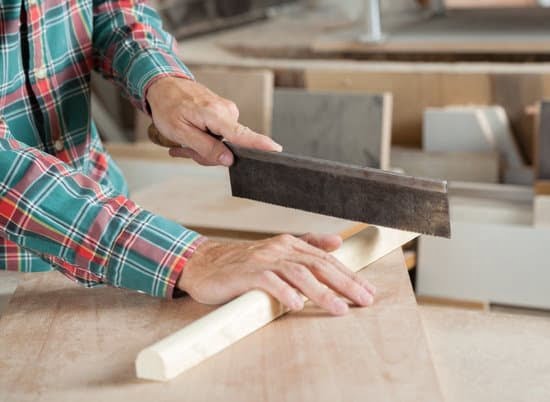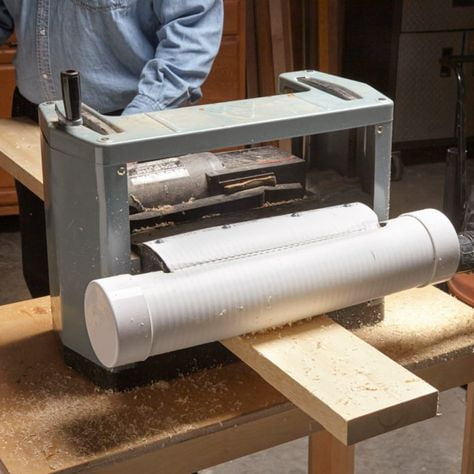Amateur woodworking has experienced a surge in popularity in recent years, as more and more individuals discover the joy and satisfaction of creating their own unique pieces. Whether it’s crafting functional furniture or showcasing artistic talent through intricate designs, amateur woodworkers are increasingly turning to this timeless craft as a fulfilling hobby.
However, one crucial aspect that often gets overlooked is the importance of finding quality wood for these projects. In this article, we will explore various options and provide guidance on where to buy wood for amateur woodworkers.
Choosing the right type of wood is essential for amateur woodworkers looking to achieve excellent results with their projects. The type of wood used can greatly impact the final outcome, affecting everything from durability to aesthetics. Different woods possess varying characteristics and suitability for different purposes.
Some woods may be better suited for structural stability, while others excel in providing beautiful grain patterns or offering exceptional resistance to moisture or wear. Therefore, it is crucial for amateur woodworkers to understand the characteristics of different woods and select the most suitable one for their specific project.
When it comes to purchasing wood, amateur woodworkers have several options available to them depending on their preferences and accessibility. Local hardware stores offer convenience and immediate access to a range of wood options suitable for various projects.
These stores stock commonly used woods such as pine, oak, or maple, providing a great starting point for beginners or those working on smaller-scale projects. Additionally, specialty wood stores cater specifically to woodworkers’ needs by offering an extensive selection that includes exotic and rare species not commonly found elsewhere.
Why Choosing the Right Wood is Essential for Amateur Woodworkers
Amateur woodworkers may underestimate the importance of selecting the right type of wood for their projects. However, choosing the right wood is essential to achieve a successful outcome and ensure the longevity and quality of the finished product. Different woods have varying characteristics, such as hardness, grain pattern, color, and durability, which can greatly impact the overall look and functionality of a woodworking project.
Impact on Final Outcome
Using the right type of wood can make a significant difference in the final outcome of a woodworking project. For example, if an amateur woodworker is creating furniture that requires stability and strength, using a hardwood like oak or walnut would be more suitable than a softwood like pine. The strength and durability of hardwoods make them ideal for structural elements in furniture construction.
Wood selection also impacts the aesthetic appeal of finished products. Each type of wood has its unique grain pattern and color variations that can enhance or detract from the overall appearance of a project. Choosing wood with visually appealing patterns can elevate the beauty of furniture or decorative items created by amateur woodworkers.
Suitability for Different Purposes
Different types of wood have specific characteristics that make them more suitable for particular purposes. For example, certain woods are better suited for outdoor projects due to their resistance to decay and moisture damage. Cedar or redwood are popular choices for outdoor furniture or structures because they naturally repel insects and resist rotting.
On the other hand, some woods excel in specific applications due to their workability or ability to hold intricate details. Cherry wood, known for its smooth finish and rich coloration, is often used in cabinetry or fine furniture making where aesthetics are prioritized.
Understanding these differences allows amateur woodworkers to choose the most appropriate wood species based on their project requirements, ensuring both function and beauty in their creations.
By taking the time to research different types of wood options, amateur woodworkers can make informed decisions when it comes to the materials they select for their projects. Whether they prioritize durability, aesthetics, workability, or sustainability, choosing the right wood will greatly enhance their woodworking experience and contribute to the success of their creations.
Local Hardware Stores
When it comes to purchasing wood for their projects, amateur woodworkers have different options to consider. One of the most convenient and readily available options is local hardware stores. These stores are often the go-to destination for home improvement needs, including a variety of wood products suitable for woodworking projects.
Availability and Variety
Local hardware stores typically stock a range of wood products, making them a convenient option for amateur woodworkers looking to buy quality materials close to home. From plywood and dimensional lumber to pre-cut boards and rough sawn lumber, these stores offer a wide selection to meet various woodworking needs.
Convenience and Immediate Access
One of the primary advantages of purchasing wood from local hardware stores is convenience. These stores can be found in nearly every neighborhood, making them easily accessible for amateur woodworkers. With their regular operating hours and proximity to their customers, local hardware stores allow woodworkers to acquire the materials they need without having to travel long distances or wait for delivery.
Furthermore, local hardware stores provide immediate access to wood products. Woodworking enthusiasts can walk into the store, browse through available options, inspect the quality firsthand, and make a purchase on the spot. They can also consult with knowledgeable staff who can provide guidance on selecting the right type of wood for specific projects.
Tips for Buying Wood at Local Hardware Stores
While shopping at local hardware stores is convenient, there are a few tips that amateur woodworkers should keep in mind when buying wood:
- Check multiple stores: Different hardware stores may offer different selections or qualities of wood. Visiting multiple locations can help ensure you find exactly what you need.
- Inspect before purchase: Before buying any pieces of wood, thoroughly examine them for any defects or damage that could affect your project’s outcome.
- Consider specific needs: Be aware of the specific requirements of your project and choose wood accordingly. Determine whether you need treated lumber for outdoor use, or if a cheaper option like plywood will suffice.
By considering these tips, amateur woodworkers can make the most out of the availability and convenience offered by local hardware stores when buying wood for their projects.
Specialty Wood Stores
When it comes to finding the perfect wood for your woodworking projects, specialty wood stores are a treasure trove for amateur woodworkers. These stores cater specifically to woodworkers and offer a wide variety of wood options, including exotic and rare species. Whether you’re looking for that unique piece of lumber or a specific type of wood with distinct characteristics, specialty wood stores are the go-to destination.
One of the major benefits of buying wood from specialty stores is the wide range of options available. These stores often source their wood from different locations and suppliers, allowing them to offer a diverse selection.
From domestic hardwoods like oak and maple to more exotic choices such as teak or purpleheart, you’ll find an extensive array of woods to choose from. This variety gives amateur woodworkers the flexibility to experiment with different types of wood, enhancing their skills and expanding their creativity.
In addition to the selection, specialty wood stores also provide expertise and guidance. The employees at these stores are knowledgeable about different woods’ characteristics and can help you choose the right one for your project. They can recommend suitable options based on factors like durability, workability, and appearance. This guidance ensures that you make an informed decision and select the best type of wood that aligns with your project requirements.
| Specialty Wood Store | Location | Website |
|---|---|---|
| The Woodworker’s Source | Arizona, USA | www.thewoodworker.com |
| Exotic Lumber Inc. | Connecticut, USA | www.exoticlumber.com |
| Bell Forest Products | Michigan, USA | www.bellforestproducts.com |
These specialty wood stores offer an online shopping experience, allowing you to conveniently browse and purchase their products from the comfort of your home. Many of them provide detailed descriptions of each wood species, including its properties and recommended uses, making it easier for amateur woodworkers to make informed decisions.
Online Retailers
In today’s digital age, online retailers have become a go-to source for purchasing various items, and wood is no exception. For amateur woodworkers who are looking for convenience and a wide range of options, online retailers can be a valuable resource for buying wood. Here are some reasons why online retailers are a useful source for amateur woodworkers:
- Convenience: One of the biggest advantages of buying wood from online retailers is the convenience it offers. With just a few clicks, you can browse through an extensive collection of different types of wood from the comfort of your own home. This saves you time and effort that would have otherwise been spent going to physical stores.
- Wide Variety: Online retailers specializing in providing wood for amateur woodworkers often have a vast selection of options available. Whether you’re looking for domestic hardwoods like oak or walnut or exotic species like teak or padauk, you’re likely to find what you need online. Some online retailers even offer rare and hard-to-find woods that may not be readily available in your local area.
To ensure a satisfactory purchase experience, it’s important to choose reputable online retailers that have positive customer reviews and offer detailed information about the characteristics and quality of the wood they sell. Additionally, pay attention to shipping costs and policies to make sure they align with your budget and needs.
Overall, online retailers provide amateur woodworkers with the convenience of shopping from home coupled with access to a wide variety of wood options. It’s worth exploring different websites specializing in providing wood to find the perfect materials for your woodworking projects.
Some recommended online retailers for purchasing wood include:
- Woodcraft: Known for its extensive range of woodworking supplies, Woodcraft offers a diverse selection of domestic and exotic woods.
- Rockler: A popular destination for hobbyist woodworkers, Rockler provides an array of different types of wood suitable for various projects.
- Bell Forest Products: This retailer offers a wide range of high-quality domestic and exotic woods, providing detailed information about each wood’s characteristics.
By utilizing these online resources, amateur woodworkers can easily find the perfect wood for their projects, whether they are looking for common woods or more unusual species.
Local Sawmills
When it comes to sourcing high-quality wood for woodworking projects, local sawmills can often be a hidden gem for amateur woodworkers. These establishments provide direct access to freshly cut and locally sourced timber, offering a unique opportunity to obtain unique and high-quality wood species.
One of the main advantages of buying wood from local sawmills is the ability to support local businesses and artisans. By purchasing wood directly from these establishments, amateur woodworkers contribute to the sustainability of their local economy and help preserve traditional woodworking practices. In addition, local sawmills may offer a more personalized experience, allowing customers to have direct communication with the sawyers or owners who can provide valuable advice on selecting the right type of wood for specific projects.
Furthermore, local sawmills often have extensive knowledge about different wood species and their characteristics. They can educate amateur woodworkers on the best type of wood for specific applications, ensuring that projects turn out as envisioned. Whether it’s finding the right hardwood for furniture making or obtaining softwood suitable for outdoor projects, local sawmills can offer expert guidance and recommendations.
To assist amateur woodworkers in locating nearby sawmills, various online directories are available that provide listings of local mills based on geographical location. These directories also offer details such as the types of services provided by each mill and contact information. Utilizing these resources can help ensure that amateur woodworkers find reputable and reliable sources for high-quality wood.
| Advantages of Buying Wood from Local Sawmills |
|---|
| – Direct access to freshly cut and locally sourced timber |
| – Ability to support local businesses and artisans |
| – Personalized experience and expert guidance on selecting the right type of wood |
| – Availability through online directories for easy accessibility |
Salvaged Wood
In today’s world, sustainability is becoming increasingly important. One way amateur woodworkers can contribute to this cause is by using salvaged or reclaimed wood in their projects. Salvaged wood refers to wood that has been repurposed from old structures, furniture, or other sources, preventing it from ending up in landfills. This section will explore the benefits of using salvaged wood and provide various sources for obtaining it.
One of the primary advantages of using salvaged wood is its positive environmental impact. By giving a second life to discarded materials, amateur woodworkers can reduce the demand for new timber and help conserve natural resources. Additionally, using salvaged wood reduces the amount of waste generated and decreases carbon emissions associated with the logging and processing of new timber.
There are several sources for obtaining salvaged wood. Construction sites often have leftover materials that can be repurposed for woodworking projects. Contacting local builders or construction companies could yield opportunities to acquire salvaged materials at little to no cost. Another option is visiting recycling centers or salvage yards that specialize in reclaiming building materials. These facilities often have a range of salvaged wood available for purchase at affordable prices.
Using salvaged wood not only benefits the environment but also adds character and uniqueness to woodworking projects. Each piece of reclaimed wood carries its own history and story, creating a sense of authenticity in the final product. Moreover, older woods like barnwood may feature weathered textures or distinct patterns that cannot be replicated with new timber.
Overall, utilizing salvaged wood offers amateur woodworkers an eco-friendly alternative while adding charm and value to their creations. By reducing waste and supporting sustainable practices, these enthusiasts can make a positive difference in the woodworking community and beyond.
Sources for Salvaged Wood:
- Construction sites.
- Local builders or construction companies.
- Recycling centers or salvage yards specialized in building materials.
Networking within the Woodworking Community
Amateur woodworkers often find themselves facing the challenge of finding reliable and high-quality sources of wood for their projects. While there are various options available, one valuable resource that should not be overlooked is networking within the woodworking community. By connecting with fellow woodworkers, enthusiasts can gain access to a wealth of knowledge and recommendations when it comes to purchasing wood.
One of the key benefits of networking within the woodworking community is the opportunity to discover reliable wood suppliers. Fellow woodworkers who have been practicing their craft for a while can provide invaluable recommendations on where to buy wood for amateur projects. They may have firsthand experience with different suppliers, knowing which ones offer quality material at reasonable prices. Networking allows amateurs to tap into this collective knowledge and make informed decisions about where to purchase their wood.
In addition to sourcing recommendations, networking within the woodworking community also opens up opportunities for group purchasing. By joining forces with other local woodworkers, amateurs can potentially achieve bulk discounts or negotiate better prices from suppliers.
This not only helps in reducing costs but also strengthens relationships within the community and fosters a sense of camaraderie among fellow enthusiasts. Group purchasing can also enable amateurs to access unique or specialty woods that may otherwise be difficult or expensive to obtain individually.
Additional Resources and Recommendations for Amateur Woodworkers:
- Woodworking forums like Reddit’s r/woodworking or sawmillcreek.org offer a wealth of information and discussions on wood sourcing, including recommendations for reputable suppliers in specific regions.
- The book “Understanding Wood: A Craftsman’s Guide to Wood Technology” by R. Bruce Hoadley provides a comprehensive guide to different wood types, characteristics, and uses, equipping amateurs with the knowledge needed to make informed choices when purchasing wood.
- Websites such as Woodfinder.com or Rockler.com offer searchable databases of wood suppliers across different regions, providing amateurs with online resources for finding dependable sources of wood for their projects.
Conclusion
As an amateur woodworker, finding the perfect wood for your projects is essential to achieving the desired outcome. Throughout this article, we have discussed various options for purchasing wood, ranging from local hardware stores to online retailers and even salvaged wood sources. By exploring these different avenues, you can empower yourself to find the ideal wood for your woodworking endeavors.
It is important to remember that each type of wood has its own unique characteristics and suitability for different purposes. Whether you are looking for a specific grain pattern, a certain level of durability, or a specific color, understanding the qualities of different woods will help you make informed decisions. By considering factors such as hardness, stability, and workability, you can select the right wood that will enhance your project and ensure its long-lasting quality.
In addition to understanding the importance of choosing the right wood, it is also beneficial to network within the woodworking community. Connecting with fellow woodworkers not only provides valuable opportunities for recommendations on reliable wood suppliers but also opens doors to group purchasing initiatives where discounts may be available. Building relationships within this community enables you to tap into a wealth of knowledge and experience that can guide you in your pursuit of finding the perfect wood.
Additional Resources and Recommendations for Amateur Woodworkers
In conclusion, amateur woodworkers have a wide range of options when it comes to finding the perfect wood for their projects. Whether they prefer the convenience of local hardware stores or want to explore specialty wood stores and online retailers, there is no shortage of places to buy quality wood. Additionally, local sawmills offer unique opportunities to support local businesses while accessing high-quality and often rare wood species.
For those concerned about sustainability, salvaged or reclaimed wood is an excellent option. This not only helps reduce waste but also adds character and uniqueness to woodworking projects. Construction sites and recycling centers are great sources for salvaged wood.
Furthermore, networking within the woodworking community can be a valuable resource for amateur woodworkers. By connecting with fellow enthusiasts, not only can they discover reliable wood suppliers but also gain access to recommendations and even group purchasing opportunities.
Frequently Asked Questions
What is the best wood for beginner woodworking?
The best wood for beginner woodworking would be one that is readily available, easy to work with, and forgiving of mistakes. A popular choice for beginners is softwood, such as pine or cedar, which can be found at most lumberyards or home improvement stores. Softwoods are generally less expensive than hardwoods and have a more forgiving nature when it comes to cutting and shaping.
They are also easier to find in various dimensions, making them ideal for basic woodworking projects like shelves or small furniture pieces. As beginners develop their skills and gain more experience, they can gradually venture into working with more challenging woods.
How do you get good wood for woodworking?
There are several ways to acquire good wood for woodworking. One option is to visit local lumberyards or specialty wood suppliers who offer a wide selection of different types of wood. These establishments typically cater to woodworkers and can provide high-quality materials suitable for various projects.
Another option is salvaging wood from old furniture or discarded pallets, known as reclaimed wood. Reclaimed wood can add character to a project while also being environmentally friendly since it reduces waste. Additionally, some online marketplaces connect woodworkers with local suppliers who sell specialty woods not readily available in retail stores.
How do you buy wood for a DIY project?
When buying wood for a DIY project, it’s essential to consider a few factors to ensure you get the right materials for your needs. First, determine the type of wood required by considering factors like durability, appearance, and ease of workability. Then calculate the necessary quantity by accurately measuring the dimensions needed for your project and adding a margin for any potential mistakes or waste during cutting and shaping.
Next, compare prices from different sources (both online and local) to ensure you’re getting the best deal without compromising quality. Inspect the chosen pieces before purchasing; look for straightness, absence of knots or defects depending on your requirements,

Hi everyone! I’m a woodworker and blogger, and this is my woodworking blog. In my blog, I share tips and tricks for woodworkers of all skill levels, as well as project ideas that you can try yourself.





